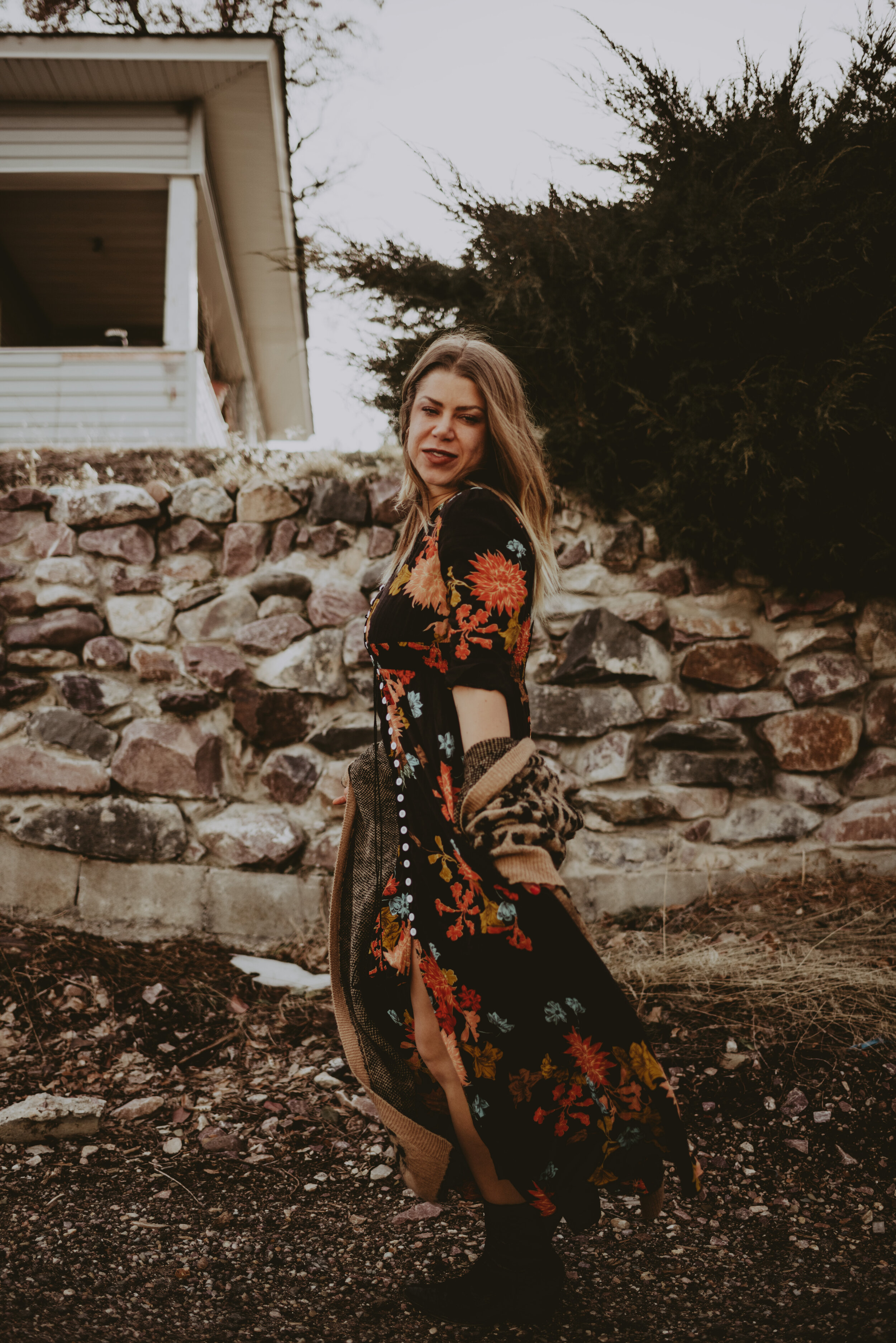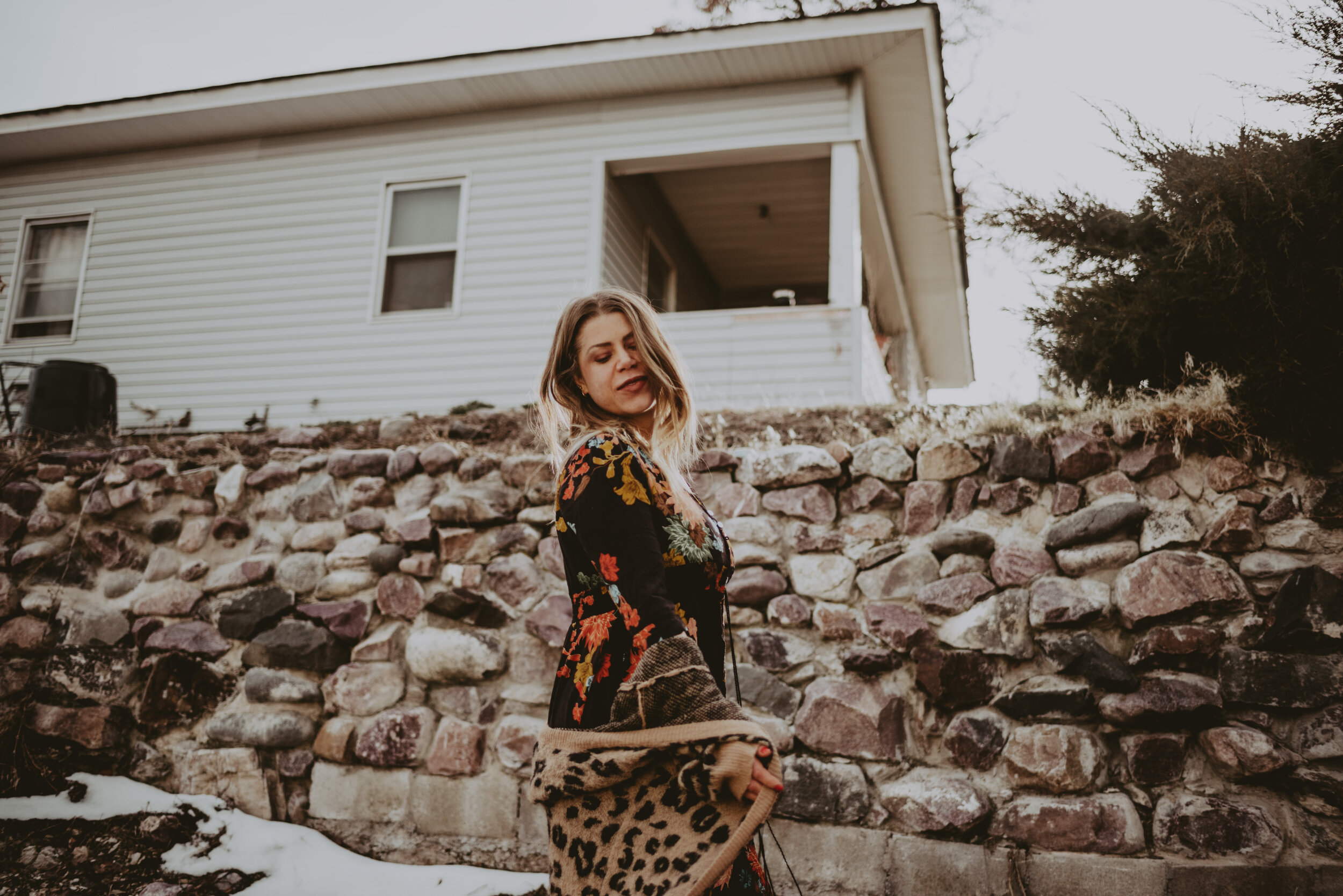Decisions, decisions...
Images by Brooke Richardson Photography
“There will be times in your life when all your instincts will tell you to do something, something that defies logic, upsets your plans, and may seem crazy to others. When that happens, you do it. Listen to your instincts and ignore everything else. Ignore logic, ignore the odds, ignore the complications, and just go for it.”
Do you typically make your decisions quickly, on instinct, or slowly?
I’m a big believer in balance being the key to life, including when it comes to decision-making. No matter which camp you generally identify with, this post offers insight on being an effective decider. Sexy stuff, I know, but you gotta admit - extremely useful.
As is often the case (at least with me), one of my strengths is also a complicating factor. In this case it’s my open-mindedness and ability to generate/consider multiple options. Awesome when you’re writing a report or devising a strategy, not so awesome when you’re just needing to buy some friggin’ shampoo.
I’m an analyst by profession and nature, so it’s my inclination to gather as much info as possible. I know all too well the feeling of paralysis by analysis. (But not with certain decisions like, you know… TATTOOS. I’ll walk into a tattoo joint and switfly decide on the spot what I’ll get permanently marked on my skin, whereas I’ve spent hours/days determining the best facial cleanser. Gotta love me.)
When I say hours/days spent researching, I’m not kidding. Down the rabbit hole I’d go. I’d look at different brand, study different types, compare various prices, weigh relevant factors. I’d scour reviews - only to emerge with my head spinning and my decision more elusive than when I started.
For the sake of time and sanity (mine and those around me!), I committed to becoming more decisive. I learned decisiveness is like a muscle: the more you exercise it, the stronger it becomes. And what makes it even easier and more effective is relaxing and learning to identify, access, and trust my intuition. Blink by Malcolm Gladwell is an insightful book on this. Highly recommend.
I noticed - and later substantiated through reading works such as Blink - the more possibilities I had to consider, the more overwhelmed I became and the harder it was to decide. Sure, you want to have options, but at some point it becomes detrimental. As it often goes, moderation is key: not too few, not too many.
Blink shares the story of a life-altering lesson learned at Chicago’s Cook County Hospital, where emergency room physicians suffered analysis paralysis when trying to diagnose patients with heart attack symptoms. Gladwell notes they discovered an algorithm containing a simple set of criteria had a higher success rate than the traditional treatment protocol Gladwell describes as “long and elaborate and -– worst of all –- maddeningly inconclusive.”
Sound familiar? Beyond a certain point, additional information, no matter how accurate or seemingly relevant it might be, can actually impede decision-making. Do less, succeed more. Or something like that. :)
We have come to confuse information with understanding. We are inundated with information, which can actually cloud our instincts and judgment. It’s good to be informed, but detrimental to be too informed. Paralysis by analysis. The key to good decision making is not knowledge. It is understanding. We are swimming in the former. We are desperately lacking in the latter.
This Freud quote echoes Gladwell’s advice:
“When making a decision of minor importance, I have always found it advantageous to consider all the pros and cons. In vital matters, however, such as the choice of a mate or a profession, the decision should come from the unconscious, from somewhere within ourselves. In the important decisions of personal life, we should be governed, I think, by the deep inner needs of our nature.”
Powerful, right? Score another one for the importance of self reflection and awareness.
When faced with decisions in life, ask: What’s your biggest goal/desire in life right now? Ask yourself which of the options (if any) align with that.
And it might take digging to distill it down into one main goal/desire. It’s a matter of sitting with yourself, letting your distracting thoughts come and go, and leveling with yourself on a spiritual level - NOT an intellectual level - and facing your inner being and letting that guide you. I think one of the biggest points to remember is to identify your fears - and not let them drive your decision(s). So maybe that’d be a helpful place to start: identifying your fear(s) and seeing if/how they’re affecting your thoughts/decisions.
Here are some concrete tips for optimal decision-making:
Know your unknowns + intelligence gaps
Know what you don’t know!
Consider varying perspectives/interpretations/options
To a point - set limits to avoid getting sucked into the abyss
Challenge assumptions
Your own and others’!
Rate your confidence level with each option
This can help you think about what you might be missing and choose the option you feel best about
Assess your immediate reaction to each option
Do you feel a sense of peace? Unease?
If you pick a difficult choice yet your heart feels at peace…that’s a good sign
Load up on the relevant info and then move on!
Distract yourself with other things. Let your subconscious handle it. Science shows this leads to superior decisions. Per Unconscious Thought Theory, your conscious mind is needed for decisions with strict rules, eg math calculations; but for decisions with large amounts of info that can be vague/conflicting, your unconscious mind is the MVP.
Remove unnecessary pressure from yourself!
Make a decision and if it didn’t yield the desired results, go from there and make another decision
Consider the worst case scenario(s) and ask yourself: Why would that be so bad?
Things are often not as dire as they seem. Asking yourself this question (repeatedly, if necessary) will guide you to your driving fear - so you can recognize and override it.
Especially when contemplating a minor decision such as an entrée or a new pair of shoes. If you end up regretting your purchase, you may be out some money and life may temporarily be sub ideal, but life will definitely go on.
Stay open and embrace uncertainty
Sometimes the easiest way to be wrong is to be certain you are right. Studies have found a strong correlation between astute decision-making and a willingness to recognize - even embrace - uncertainty. Low-ability individuals tend to overestimate their skills.
Try getting creative and innovative
Consider unconventional methods/solutions
Just because something is done a certain way doesn’t mean it always needs to be done a certain way. Progress is made through trailblazing and daring to differ
Practice on micro decisions. If you’re prone to soliciting advice on everything, practice deciding solo. If you tend to make rash judgments, try slowing down to weigh options and ask others’ perspectives.
Remember: You don’t need an answer to everything. That’s not how life works. We figure it all out by living and experiencing. By screwing up, by missing an opportunity, by seeking advice and not taking it, by taking advice wrong for us. We learn what’s important and what isn’t. Sometimes we have no clue what to do, and that’s okay. Always trust your gut and know everything will work out as it should. It always does. Relax. And love.
-w-
“In the end...we only regret the chances we didn’t take, the relationships we were afraid to pursue, and the decisions we waited too long to make.”


